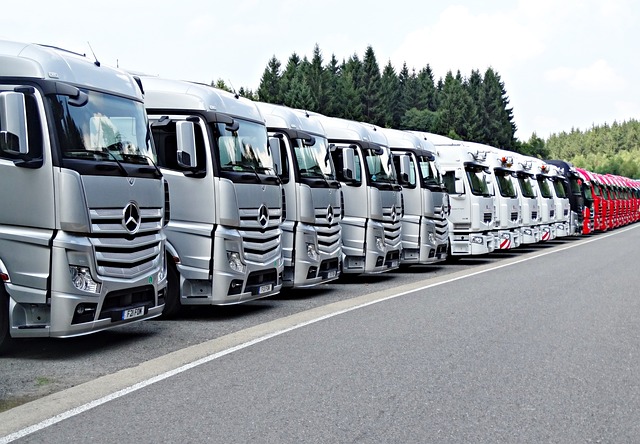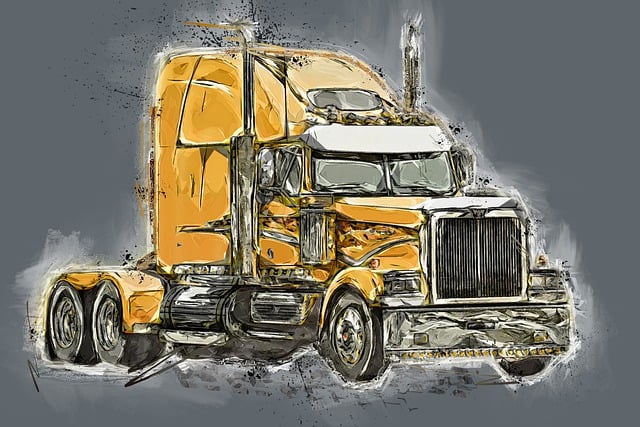The long-distance trucking industry is embracing eco-friendly practices driven by electric trucks, offering reduced emissions, improved efficiency, and lower maintenance costs. Technological advancements have addressed range anxiety with longer battery life and charging infrastructure. Governments worldwide incentivize the adoption of Select Electric Trucks (SETs) through tax credits and subsidies, promoting environmental conservation, economic growth, and job creation while keeping the industry competitive.
Long-distance trucking is undergoing a green transformation, and eco-friendly options are gaining traction. This shift towards sustainability presents both opportunities and challenges, particularly with concerns over range and efficiency. In this article, we explore the benefits of adopting electric trucks for long-haul transportation, discuss how technological advancements tackle ‘range anxiety’, and delve into government incentives promoting a greener transport future. By considering these factors, we can accelerate the transition to more sustainable long-distance trucking with the help of select electric trucks.
- Benefits of Electric Trucks for Long-Distance Hauling
- Overcoming Range Anxiety: Technology Advancements
- Incentives and Government Support for Eco-Friendly Transport
Benefits of Electric Trucks for Long-Distance Hauling

The shift towards eco-friendly long-distance trucking is gaining momentum, and at the forefront of this revolution are electric trucks. These vehicles offer a range of benefits for the industry, from reduced environmental impact to significant cost savings. Electric trucks, such as the growing selection of electric truck models available, can significantly lower carbon emissions compared to their traditional diesel counterparts. By harnessing the power of electricity, these vehicles contribute to cleaner air and a more sustainable future.
One key advantage lies in the efficiency of electric cargo bikes and solar-powered haulers, which can optimize energy use during long journeys. This technology allows for smoother acceleration, improved performance at higher altitudes, and reduced maintenance costs over time. Additionally, as electricity becomes increasingly sourced from renewable methods, long-distance trucking can become even more environmentally friendly, positioning the industry for a greener and more sustainable tomorrow.
Overcoming Range Anxiety: Technology Advancements

The shift towards eco-friendly long-distance trucking is gaining momentum, and one significant challenge on this path is overcoming range anxiety—the fear that electric vehicles (EVs) won’t have enough power to complete journeys. However, technology advancements in battery capacity and charging infrastructure are revolutionizing green logistics companies. Modern electric truck models now boast impressive ranges, rivaling their traditional diesel counterparts. This breakthrough allows trucking operations to adopt greener practices without sacrificing distance or efficiency.
Innovations like fast-charging stations and wireless charging technologies further alleviate range concerns. As a result, more green trucking initiatives are taking shape, with various companies transitioning their fleets to electric trucks. With the increasing availability of long-range electric truck models, the future of sustainable trucking looks promising, paving the way for a greener and more environmentally conscious transportation sector.
Incentives and Government Support for Eco-Friendly Transport

Many countries are recognizing the importance of transitioning to greener transportation options, and this shift is particularly evident in the long-distance trucking industry. Governments worldwide are offering incentives and support to encourage the adoption of eco-friendly vehicles, with a focus on reducing carbon emissions. One prominent approach is the promotion of Select Electric Trucks (SETs), specifically designed for long-range transportation. These electric trucks offer a sustainable alternative to traditional diesel rigs, providing an opportunity to significantly lower the carbon footprint associated with heavy-duty transportation.
The advantages are multifaceted; not only do SETs contribute to environmental conservation by reducing greenhouse gas emissions, but they also foster economic growth and job creation in the green technology sector. Governments provide various incentives, including tax credits, subsidies, and grants, to make electric trucks more affordable for trucking companies. This support is instrumental in encouraging businesses to invest in cleaner transportation, paving the way for a more sustainable future while ensuring the competitiveness of the industry on both environmental and economic grounds.
The shift towards eco-friendly long-distance trucking is not just a trend, but a necessary step towards a sustainable future. By selecting electric trucks, the industry can reduce its carbon footprint while reaping benefits like lower operating costs and improved efficiency. Overcoming range anxiety through technological advancements ensures that green trucking becomes increasingly feasible and accessible. Government incentives and support further reinforce this transition, making it a profitable and responsible choice for both businesses and the environment.
